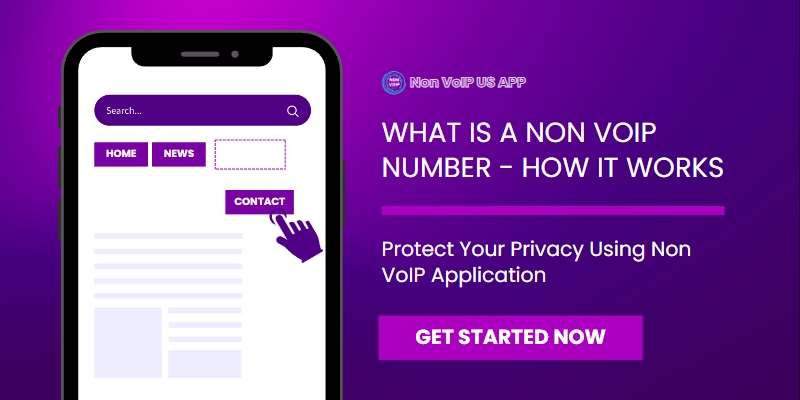In the search for business phone services, knowing the difference between Fixed and Non-Fixed VoIP numbers remains a leading question. The differences between them are not very identical. Very much dependent on their facilities and limitations.
There are several basic differences that should be known. VoIP (Voice Over Internet Protocol) significantly minimizes communication costs. In a simple sense, it allows calls placed over the internet. Digging deeper may fetch more concepts but In the very beginning;
What is a Fixed VoIP Number?
The number attached with a physical address can be called the Fixed VoIP number. Obviously, it is an internet-based phone connection that works over the internet protocol. But it has a geographical boundary. Beyond that, the number is not going to work.
Fixed VoIP numbers are ported easily and locally by native users. The numbers contain local addresses to it. Also, this can be changed easily by porting the system.
In simple words, a Fixed VoIP Number system is a cloud-based phone network system that uses an IP network calling system to send and receive phone calls.
This method is appreciated and recommended in business systems because of its security factors.

Pros of Fixed VoIP Phone System
- It has definitely better security strength that prevents any sort of data and information leak.
- As the number is ported to a local address. If it is dialed with an emergency number, it automatically redirects the call to local emergency service center.
- Online verification on different sites.
Practically anything with so many good sides cannot exist without some of its bad sides. Likely for Fixed VoIP Numbers. The bad sides will be comparatively discussed at the end of the page.
Now,
What is a Non-Fixed VoIP Number?

Very simply according to the previously noted definition, Non-Fixed VoIP numbers are numbers that aren’t geographically limited. They are not linked or ported to any physical address.
When it comes to the term international communication barriers, Non-Fixed VoIP numbers break the bar. Having non-fixed VoIP numbers one can use it breaking country borders. It provides unlimited calling, voicemail, or conferencing facilities across borders without any limitations.
Pros of Non-Fixed VoIP Phone System
- Globally free communication with the subscription, without any extra charges.
- There is no ported location to the number so, during a call, the number obviously shows the local location code.
- Companies that need to communicate seamlessly worldwide must have one of these because it actually provides you with better consistency in global communication.
And as noted before, there must be some dark lines of any good materials too;
Cons of the Systems
Bad Sides of Fixed VoIP Phone System
- Expenses are high, especially while international calling charges are way higher.
- Has locational limitations, and cannot be used beyond global borders.
- In case of any trouble, the service would be got at a certain location only, with no other scope to have services generally.
Bad Sides of Non-Fixed VoIP Phone System
- Easy risk of hackers and fraud.
- These phone system servers are not made very strong, so it gets breached too easily.
- Professional hackers can hack these numbers if the security is not strictly maintained.
- Regarding these problems, there is a severe risk of data leaking and data loss.
Though till now the explanation was much materialistic, now the term is going like an emphasized summary;
Fixed and Non-Fixed VoIP Numbers are practical in the same way. They both have their difference in functionalities. Fixed VoIP numbers are way more costly in terms of international calls whereas Non-Fixed VoIP numbers are completely free after a subscription. Fixed VoIP provides more security and data privacy than the other one cannot.
While the fixed numbers are ported to a physical address, non-fixed numbers run beyond any geographical border.
For local business activities, Fixed VoIP numbers are enough for international communication for business, it sometimes gets mandatory to have a Non-Fixed VoIP number. Being in local limitations, fixed ones are easily trackable whereas non-fixed numbers are never easily traced or trackable.
Taking whole these factors into concern, the fixed VoIP numbers are not extremely flexible or provide too many services. Where the Non-Fixed VoIP numbers can provide some more facilities with zero limitations. But the main issue comes about security, the fixed numbers are stronger in their security terms whereas the Non-Fixed Numbers are easier and breakable.
In a general statement, Fixed VoIP numbers are the landlines, they are pretty much secure and usable for secure data passing, no security breach, and full time applicable for OTP (One Time Pin) or App and Website verifications. Non-fixed VoIP numbers are usable for international seamless communication but still there remains a chance of security and data leaks.
In the end, both of the types have their way of usability and different terms of their functionality. Demand and use of it depend on how the user wants it. Stating one better is kind of silly because it will depend on user’s own perspective and necessity.
Tasks like, global communication, international bargaining, business phone calls, SIP trunking or even call center software; all are subjected to both. The user will decide which one is the necessity and take the required service for him.


